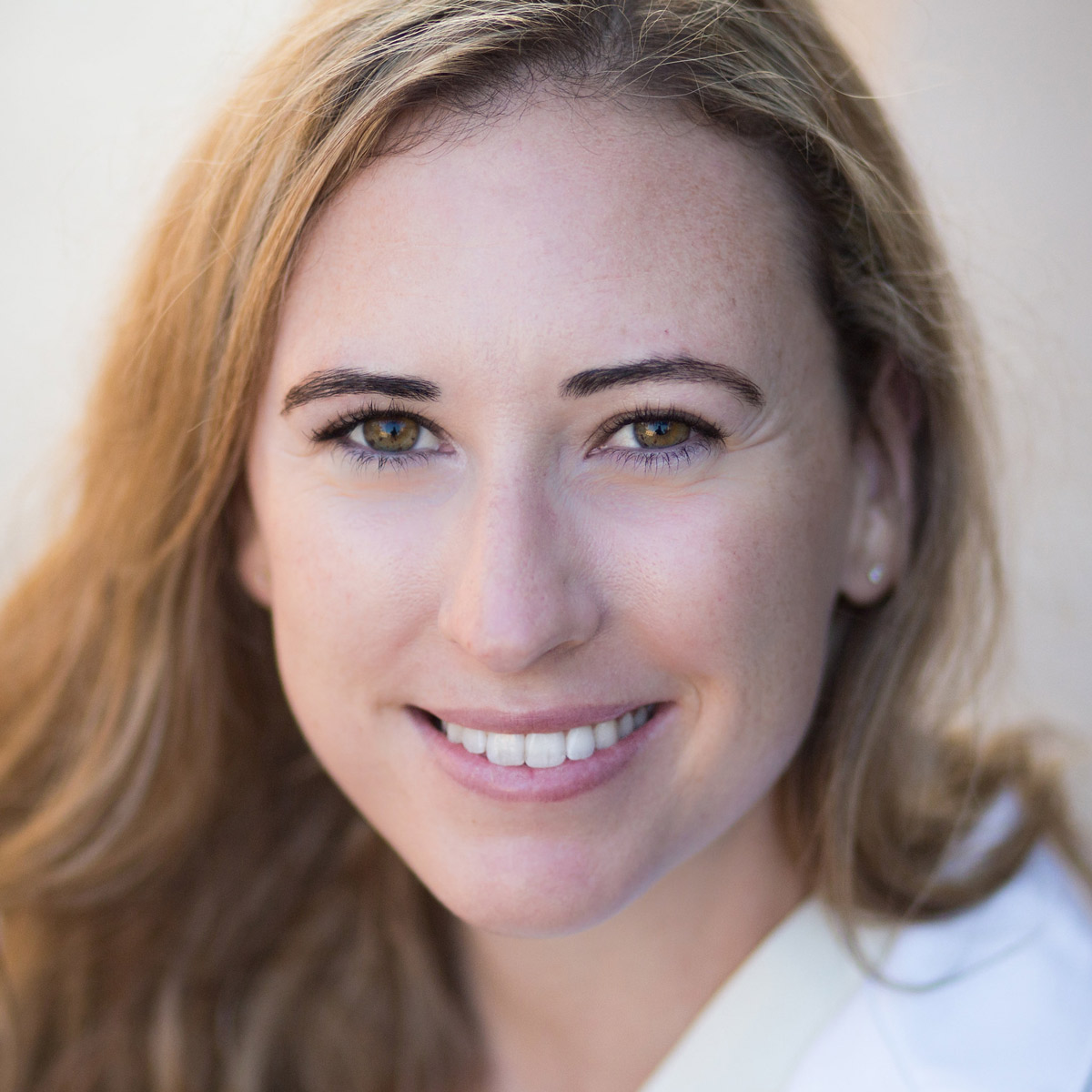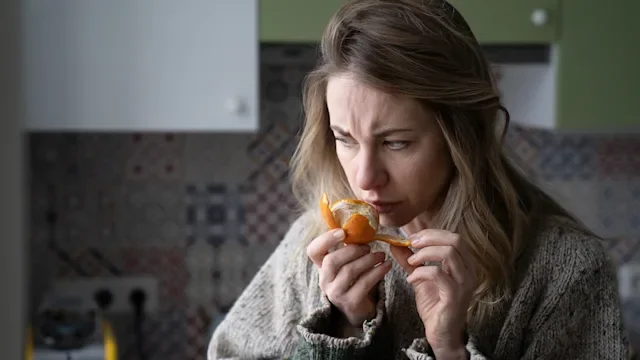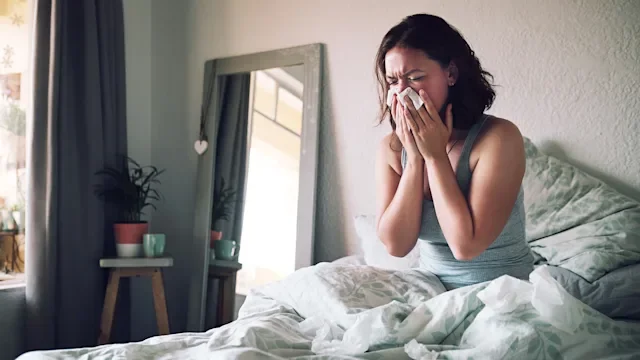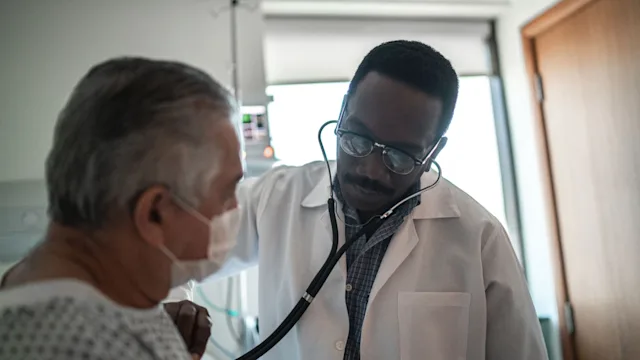Key takeaways:
Sleep issues related to COVID-19 and COVID insomnia are very common. About 4 in 10 people with COVID report trouble sleeping.
It’s not clear if COVID directly causes insomnia. But insomnia and sleeplessness are common symptoms of post-COVID syndrome, also known as long COVID.
Good sleep hygiene, along with over-the-counter (OTC) or prescription sleep aids, can help treat COVID insomnia.
Insomnia is a sleep disorder that makes it hard to fall asleep or stay asleep. Many people experience insomnia at some point during their lives. But it rarely happens on its own.
There’s usually a cause for insomnia. Most people can pinpoint a reason, such as travel changing their natural circadian rhythm, higher stress levels, or shift work.
Since the start of the COVID-19 pandemic, insomnia rates have skyrocketed. Many people experience COVID related sleep issues. If you’ve had trouble sleeping after being sick with COVID, here’s what you should know about COVID insomnia.
Search and compare options
Does COVID-19 cause insomnia?
Many people report sleep issues and insomnia during and after COVID illness. Although the CDC doesn’t list insomnia as a symptom of COVID, studies show that people often report sleeplessness and other sleep problems while they have COVID. It’s been difficult for researchers to figure out if the virus itself causes trouble sleeping. But some research suggests that people diagnosed with COVID are more likely to develop insomnia, even if they only have a mild COVID illness.
There’s also research showing that “coronasomnia” is one of the most common symptoms of post-COVID-19 syndrome (also known as long COVID). This means that even if people don’t develop insomnia while they’re sick, they might develop post-COVID insomnia as part of a long COVID condition.
Can COVID-19 vaccines cause insomnia?
Right now, there’s no evidence that insomnia is a side effect of any of the COVID-19 vaccines. Talk with your healthcare team if you’re experiencing sleep issues after a COVID vaccine. It’s likely there’s another cause of your insomnia.
How does COVID cause insomnia?
There are no studies that show how the COVID virus affects sleep. It may not be the virus itself that causes COVID-related sleep issues. COVID insomnia may be caused by the stress of being sick. Research shows that being diagnosed with COVID-19 can lead to insomnia. Even if the illness itself doesn’t cause insomnia, the stress of having it can cause insomnia.
There’s also research showing that caring for people with COVID-19 can lead to insomnia, particularly among healthcare workers.
COVID-related sleeplessness may also be caused by COVID symptoms. For example, some people have a cough while sick with COVID, which can keep them from falling asleep. Over time, this can lead to trouble falling or staying asleep, which are key symptoms of insomnia.
Looking for more information on insomnia? Our insomnia guide is the perfect place to start.
Melatonin is a natural supplement, but it can cause side effects. Here are six melatonin side effects you should know.
Medications that can cause insomnia: If you’re having trouble sleeping at night, check if any of your medications could be behind your tossing and turning.
It’s clear that being sick with COVID can lead to sleep disturbances and sleepless nights. In one large review, scientists found that about 4 in 10 people who got sick with COVID reported trouble sleeping.
What’s more worrisome is that research suggests people who experience insomnia during COVID are more likely to take longer to recover from their illness. There’s also research showing that people who are prone to insomnia are at a greater risk of getting sick with COVID in the first place, potentially creating a vicious cycle of sleeplessness and illness.
Why does long COVID cause insomnia?
Many people experience post-COVID insomnia. Ongoing studies are looking at the relationship between post-COVID insomnia and long COVID. But right now, it’s not clear why insomnia is such a common symptom of long COVID.
Some researchers think that post-COVID insomnia can be related to pain, another feature of long COVID. Headaches, also a symptom of long COVID, may disrupt sleep and lead to insomnia and other sleep disorders.
How long does COVID-19 insomnia last?
It’s not yet clear how long post-COVID insomnia and COVID sleep issues can last. Some people experience symptoms for weeks to months, especially if they develop post-COVID-19 syndrome or post-traumatic stress disorder (PTSD) related to COVID-19.
How do you treat COVID-19 insomnia?
Treatment for COVID-related insomnia is the same as treatment for other types of insomnia. The first step is to develop a sleep strategy by improving sleep hygiene. Some things that can promote better sleep hygiene include:
Going to bed at the same time every night
Sleeping in a dark room with as little light as possible
Avoiding using light-emitting electronics in bed, including cellphones, computers, and TV
Eating an early dinner
Getting daily exercise
Avoiding caffeine, alcohol, or nicotine in the evening
If you continue to have insomnia, ask a healthcare professional about trying an over-the-counter (OTC) sleep aid, like melatonin. Melatonin can help some people sleep better and is safe for most people to use for a short period of time.
It’s also important to focus on mental wellness if you’re having trouble sleeping. This may include:
Working with a therapist
Practicing meditation
Doing mindfulness activities
Trying out activities to promote a healthy mind
If these methods still aren’t enough, your healthcare team may offer you a prescription sleep aid for a short period of time.
What to do if you can’t sleep due to COVID-19?
Some people have trouble falling asleep because of a bout of COVID-19 illness. Symptoms of COVID-19 — like fever, cough, and congestion — can make falling and staying asleep a challenge. Here are some steps you can take:
About 30 minutes before bed, try breathing in hot, moist air. You can do this by sitting on the edge of a bathtub with the shower running and breathing in the steam. You can also breathe in steam from a bowl of hot water.
Take OTC fever relievers, like acetaminophen (Tylenol) or ibuprofen (Advil, Motrin), and any prescription or OTC decongestant about 20 minutes before bed.
Stay hydrated throughout the day and keep water next to your bed.
Avoid decongestants and other medications that contain stimulants like pseudoephedrine (Sudafed).
Use a humidifier in your room to help keep your nasal passages moist.
Get medical care right away if you can’t sleep because you’re having trouble breathing while lying down, feeling short of breath, or experiencing chest pain. These symptoms can be signs of serious illness and need urgent medical attention.
Frequently asked questions
Genetics may contribute to insomnia. Certain genes may increase your risk of developing insomnia when people are exposed to other insomnia triggers. But right now, there’s no evidence that certain genes directly cause insomnia.
Many people turn to melatonin to help with insomnia. It’s not clear if melatonin can help with chronic insomnia. Talk with your healthcare team if your trouble sleeping lasts more than 2 weeks. You may need additional treatment for your sleeplessness.
Genetics may contribute to insomnia. Certain genes may increase your risk of developing insomnia when people are exposed to other insomnia triggers. But right now, there’s no evidence that certain genes directly cause insomnia.
Many people turn to melatonin to help with insomnia. It’s not clear if melatonin can help with chronic insomnia. Talk with your healthcare team if your trouble sleeping lasts more than 2 weeks. You may need additional treatment for your sleeplessness.
The bottom line
Many people experience insomnia and other sleep disturbances because of COVID-19. Researchers aren’t sure if the virus itself causes insomnia. But the stress related to a COVID-19 illness and symptoms from COVID like a cough can lead to insomnia.
Post-COVID insomnia is also a common symptom of long COVID-19. Treatment for COVID-related insomnia includes improving sleep hygiene and mental wellness, and sometimes OTC or prescription sleep aids.

Why trust our experts?


References
Becker, P. M. (2022). Overview of sleep management during COVID-19. Sleep Medicine.
Bhat, S., et al. 2021). Sleep disorders and COVID-19. Sleep Medicine.
Bidaki, R., et al. (2012). A review on genetics of sleep disorders. Iranian Journal of Psychiatry and Behavioral Sciences.
Centers for Disease Control and Prevention. (2024). COVID-19 vaccine frequently asked questions.
Centers for Disease Control and Prevention. (2024). Symptoms of COVID-19.
Dopheide, J. A. (2020). Insomnia overview: Epidemiology, pathophysiology, diagnosis and monitoring, and nonpharmacologic therapy. The American Journal of Managed Care.
Hoang, H. T. X., et al. (2024). Sleep quality among non-hospitalized COVID-19 survivors: A national cross-sectional study. Frontiers in Public Health.
Jahrami, H. A., et al. (2022). Sleep disturbances during the COVID-19 pandemic: A systemic review, meta-analysis, and meta-regression. Sleep Medicine Reviews.
Kyzar, E. J., et al. (2021). Anxiety, depression, insomnia, and trauma-related symptoms following COVID-19 infection at long-term follow-up. Brain, Behavior, and Immunity Health.
National Center for Complementary and Integrative Health. (2024). Melatonin: What you need to know. National Institutes of Health.
National Institutes of Health. (2023). Understanding sleep problems and Long COVID.
Peng, L., et al. (2022). Insomnia and sleep duration on COVID-19 susceptibility and hospitalization: A mendelian randomization study. Frontiers in Public Health.
Roth, T. (2007). Insomnia: Definition, prevalence, etiology, and consequences. Journal of Clinical Sleep Medicine.
Sahebi, A., et al. (2021). The prevalence of insomnia among health care workers amid the COVID-19 pandemic: An umbrella review of meta-analyses. Journal of Psychosomatic Research.
Suni, E., et al. (2024). Can COVID-19 cause insomnia and sleep problems? SleepFoundation.org.
Tedjasukmana, R. (2023). Sleep disturbance in post COVID-19 conditions: Prevalence and quality of life. Frontiers in Neurology.
Vargas, I., et al. (2022). Insomnia symptoms predict longer COVID-19 symptom duration. Sleep Medicine.













